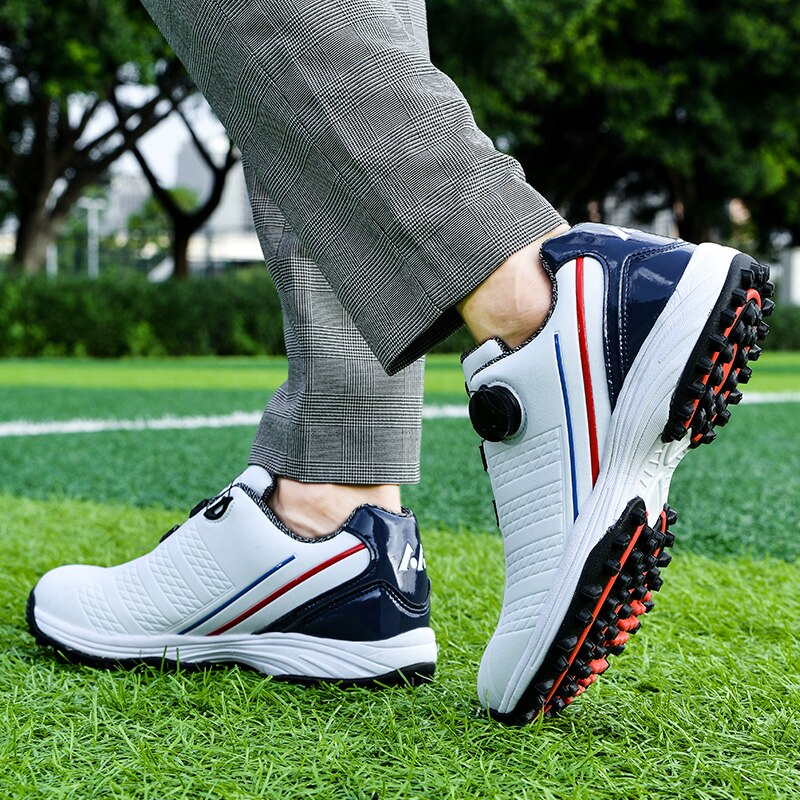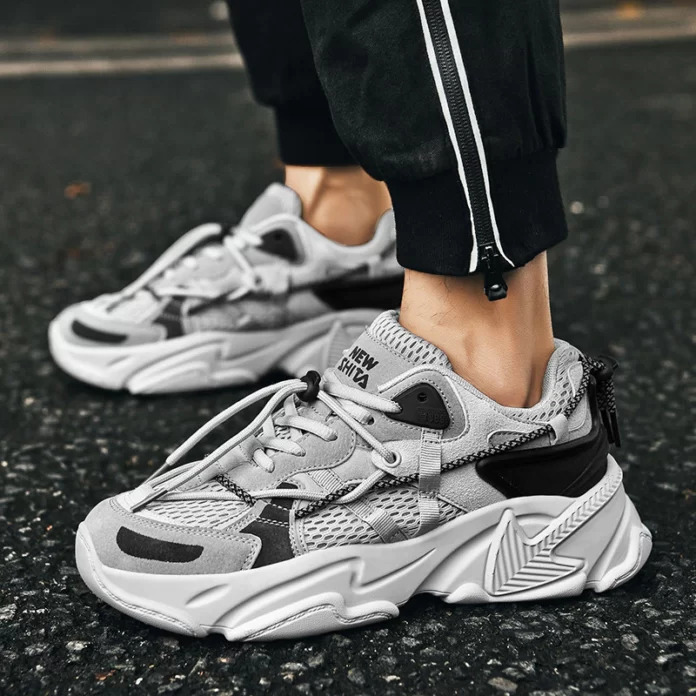Diabetics have to take extra care of their feet due to potential damage caused by high blood sugar levels. Wearing special shoes for diabetics is one of the most effective ways to protect the feet and help manage diabetes. By investing in special shoes for diabetics, you’re investing in your foot health and overall well-being. These shoes are a powerful tool in managing diabetes and preventing foot problems, allowing you to lead an active and fulfilling life. Don’t compromise on your foot care – choose diabetic shoes and give your feet the support they deserve.
What Is Diabetes and Why Foot Care Is Important
Diabetes is a chronic condition that affects the body’s ability to regulate blood sugar levels. It occurs when the body either doesn’t produce enough insulin or doesn’t use it effectively. As a result, high blood sugar levels can lead to various complications, including damage to the nerves and blood vessels in the feet. Foot care is especially important for individuals with diabetes because they are more susceptible to foot problems.
High blood sugar levels can damage the nerves, causing peripheral neuropathy, a condition that reduces sensation in the feet. This means that injuries, such as cuts or blisters, may go unnoticed and lead to infections. Additionally, poor circulation caused by diabetes can impair the body’s ability to heal, making it harder to recover from foot injuries. Proper foot care is essential in managing diabetes. Regular foot inspections, daily washing, moisturizing, and the use of diabetic shoes are vital in preventing foot problems.
 Understanding the Risks for Foot Problems in Diabetes Patients
Understanding the Risks for Foot Problems in Diabetes Patients
Diabetes is a complex condition that affects various aspects of the body, including the feet. Individuals with diabetes are at a higher risk of developing foot problems due to the impact of high blood sugar levels. These risks stem from two main factors: peripheral neuropathy and poor circulation.
Peripheral neuropathy is a condition that damages the nerves, leading to reduced sensation in the feet. This means that individuals with diabetes may not notice small injuries, such as cuts or blisters, which can quickly escalate into serious infections. Additionally, poor circulation caused by diabetes can impair the body’s ability to heal, making it harder to recover from foot injuries.
Understanding these risks is crucial for individuals with diabetes. It highlights the importance of regular foot inspections and implementing proper foot care practices. Diabetic shoes play a significant role in mitigating these risks. Their specially designed features provide protection, support, and cushioning, reducing the likelihood of injuries. By prioritizing foot care and wearing diabetic shoes, individuals with diabetes can minimize the risk of foot complications and better manage their condition.
How Diabetic Golf Shoes Help Prevent Foot Problems
For individuals with diabetes, taking care of their feet is crucial to prevent complications. And when it comes to preventing foot problems, diabetic golf shoes can be a game-changer. These specially designed shoes offer unique features that provide optimal protection and support for the feet.
Firstly, diabetic shoes have a wider toe box and extra depth, allowing room for any foot deformities or swelling. This prevents discomfort and reduces the risk of blisters or ulcers caused by friction or pressure. Additionally, the shoes offer excellent arch support, ensuring proper alignment and reducing the risk of foot fatigue and strain.
One of the most significant benefits of golf shoes is their shock-absorbing properties. They feature cushioning materials and advanced technology that help absorb impact when walking or running. This is especially important for individuals with peripheral neuropathy, as reduced sensation can make it harder to detect if the feet are being exposed to excessive pressure or trauma.
By wearing golf shoes, individuals with diabetes can actively prevent foot problems such as blisters, calluses, and foot ulcers. These shoes provide the necessary support, protection, and comfort to help manage diabetes effectively. Remember, investing in your foot health is an investment in your overall well-being.
Benefits of Proper Foot Care for Diabetes Patients
Proper foot care is crucial for individuals with diabetes, as it plays a significant role in managing their condition and reducing the risk of foot complications. By prioritizing foot care, individuals can experience a range of benefits that positively impact their overall health and wellbeing.
One of the primary benefits of proper foot care is improved circulation. Diabetes can cause poor blood circulation, which can lead to slow healing and increased risk of infections. By implementing daily foot care routines and wearing diabetic shoes, individuals can promote better blood flow to their feet, ensuring that essential nutrients and oxygen reach the tissues and aiding in the healing process.
Additionally, proper foot care helps maintain optimal foot health and prevent foot problems such as blisters, calluses, and foot ulcers. By regularly inspecting the feet, washing and moisturizing them, and wearing appropriate shoes, individuals can reduce friction, pressure, and the likelihood of developing wounds or sores.
Wearing Diabetic House Shoes Can Increased Comfort and Better Circulation
Diabetic house shoes are a fantastic addition to your foot care routine. Not only do they provide protection and support, but they also offer increased comfort and better circulation for individuals with diabetes. These specialized shoes are designed with the utmost consideration for foot health, ensuring that your feet remain comfortable throughout the day.
Wearing diabetic shoes can significantly improve your overall comfort level. The shoes feature extra cushioning and support, reducing foot fatigue and discomfort. This is especially important for individuals with diabetes who may experience sensitivity or numbness in their feet due to peripheral neuropathy. With the added comfort provided by diabetic shoes, you can go about your daily activities with ease and less pain.
In addition to comfort, house shoes promote better circulation. Diabetes can often lead to poor blood flow, which can slow down the healing process and increase the risk of infections. However, these shoes are designed to provide ample room and support, allowing for optimal blood circulation in the feet. By wearing diabetic shoes, you can ensure that essential nutrients and oxygen reach your feet, aiding in the healing process and reducing the risk of complications.
Investing in diabetic shoes is investing in your foot health and overall wellbeing. By prioritizing comfort and circulation, you can effectively manage your diabetes and reduce the risk of foot complications. Say goodbye to discomfort and hello to improved foot health with diabetic shoes.
Lowering the Risk of Foot Ulcers with Diabetic Shoes
Diabetic shoes are a powerful tool in lowering the risk of foot ulcers for individuals with diabetes. Foot ulcers are a common and serious complication that can result from high blood sugar levels, poor circulation, and nerve damage. These ulcers can be slow to heal and can easily become infected, leading to more severe complications. However, by wearing diabetic shoes, individuals can significantly reduce the risk of developing foot ulcers.
Diabetic shoes are specifically designed to provide protection and support for the feet. They have a wider toe box and extra depth to accommodate any foot deformities or swelling, reducing friction and pressure. This helps to prevent the development of blisters, calluses, and sores that can lead to ulcers. Additionally, diabetic shoes are made from materials that are gentle on the feet, reducing the risk of irritation and promoting better circulation.
Furthermore, diabetic shoes have features that enhance shock absorption, reducing the impact on the feet when walking or running. This is crucial for individuals with reduced sensation due to peripheral neuropathy, as they may not be able to detect excessive pressure or trauma. By minimizing the impact on the feet, diabetic shoes lower the risk of injuries that can lead to foot ulcers.
FAQs
Q: Do I Need A Prescription To Get Diabetic Shoes?
A: In most cases, you will need a prescription from your doctor to get diabetic shoes. This is because diabetic shoes are considered therapeutic footwear and are specifically designed to address the needs of individuals with diabetes.
Q: How Do I Know If I Need Diabetic Shoes?
A: If you have diabetes, it is highly recommended to consider wearing diabetic shoes. They provide extra protection, support, and cushioning, reducing the risk of foot problems and helping to manage diabetes more effectively. Consult with your healthcare provider to determine if diabetic shoes are right for you.
Q: Are Diabetic Shoes Covered By Insurance?
A: Many insurance plans cover the cost of diabetic shoes. However, coverage may vary depending on your insurance provider and plan. It is important to check with your insurance company to understand your specific coverage and requirements.
Q: Can I Wear Regular Shoes If I Have Diabetes?
A: While it is not recommended, you can wear regular shoes if they provide the necessary support and protection for your feet. However, diabetic shoes are specifically designed to address the unique needs of individuals with diabetes and offer added benefits in managing the condition and preventing foot problems.
Conclusion
In summary, diabetic shoes are a powerful tool for individuals with diabetes to protect their feet and manage their condition effectively. By prioritizing foot care and investing in the right pair of shoes, individuals can reduce the risk of foot complications and improve their overall wellbeing. Proper foot care, including regular foot inspections, daily washing, moisturizing, and wearing diabetic shoes, plays a crucial role in managing diabetes. These shoes are specially designed to provide protection, support, and cushioning, reducing the risk of injury. They have a wider toe box and extra depth to accommodate foot deformities or swelling.
| Other Good Articles to Read |
| niche blogs connect |
| blogs 97 |
| blog stitution |
| blogs unplugged |
| blogs cotchrouge |
| blog signatr |
| blog sintonias |
| blog zilla |
| consumer forums |
| finance forums |
| g blogs |
| too blog |



